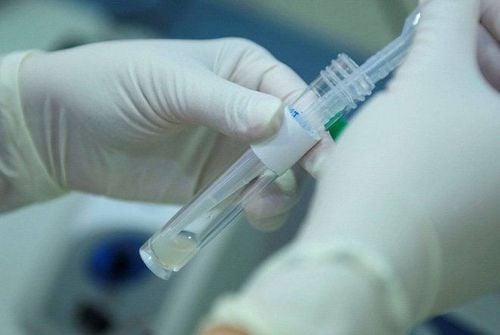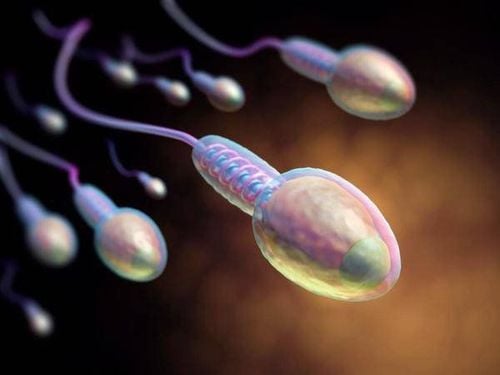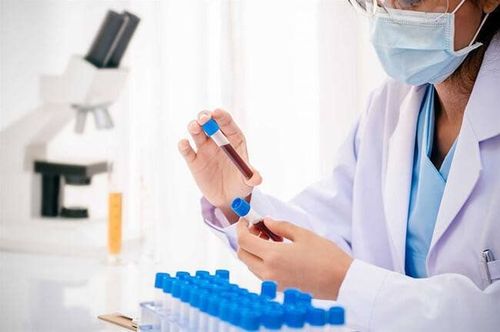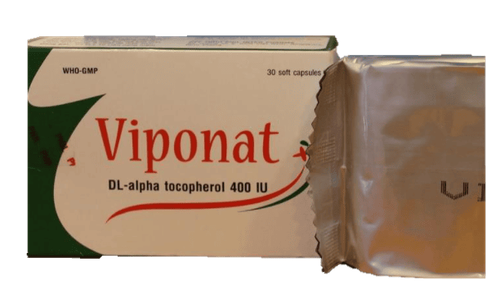This is an automatically translated article.
Anti-sperm antibodies are one of the causes of male infertility. Anti-sperm antibodies appear in the body to interfere with the fertilization process, form a combination, or affect the development of the fetus, in some cases causing miscarriage.1. Anti-sperm antibodies in men
Sperm antibodies are one of the antibodies classified in the body's specific immune system. That is, a sperm antibody is an antibody that only appears when there is contact of sperm in the body.
For the male body, sperm is seen as a foreign antigen. Within the structure of the testicles is a protective barrier called the blood-testicular barrier. This barrier acts as a barrier to help isolate sperm and its degradation products from the immune system, preventing them from entering the body but being located only on the outside of the barrier. When this protective barrier is damaged, it will create conditions for sperm and its degradation products to appear in the blood, triggering the activity of the body's immune system to produce anti-sperm antibodies to fight sperm. Again, kill the sperm. This antibody can be placed at the head or tail of the sperm:
If the antibody at the tip of the sperm will prevent the automatic binding of the sperm with the egg, hindering fertilization, pregnancy will become possible. more difficult. If antibodies in the tail of the sperm will cause immobilization, inactivate the sperm's activity or stick the sperm together, reducing the sperm's mobility.

Kháng thể kháng tinh trùng ở nam giới là gì?
In short, anti-sperm antibodies will affect reproduction by reducing sperm motility, increasing the number of inactive sperm, and interfering with the process of bonding between eggs and sperm. , modifying the terminal response or acting directly on the cervical mucus. Sometimes, uterine mucus can also form anti-sperm antibodies to fight the husband's sperm. All of these interfere with fertilization, making it difficult to form a fetal zygote, affecting the implantation and development of the fetus.
The results of clinical studies have shown that in men, the higher the concentration of antisperm antibodies in the blood plasma, the more obvious the risk of male infertility. When antisperm antibodies were present in the husband or wife, the pregnancy rate in this couple was 38% lower than in other couples.
The rate of infertility with anti-sperm antibodies accounts for about 1-6% of all male infertility cases.
2. Anti-sperm antibody test
In order to confirm the presence of antisperm antibodies in the blood plasma, currently in medicine, the MAR test technique (Mixed antiglobulin reaction) and IBT test (Immunobead test) are used in medicine:
MAR test: based on etiology. on the agglutination of sperm with sheep erythrocytes in the presence of IgA, IgG. IBT test: based on polyacrilamide complex mechanism that binds human antibodies with anti-sperm antibodies. In addition, Franklin and Duckes test techniques were used to determine the rate and titre of agglutination of anti-sperm antibodies in serum. In addition to testing for anti-sperm antibodies, in order to accurately diagnose the cause, active status as well as evaluate male reproductive health at that time, it is necessary to combine with semen analysis and semen analysis. male hormone factor test (note the reproductive hormones in men). Anti-sperm antibodies in men can be found in the serum of both sexes, possibly in seminal plasma, on the surface of sperm, or in cervical mucus. Therefore, when examining reproductive health, along with examination and testing from the husband, the wife should be tested to avoid missing diagnoses leading to wrong treatment.

Xét nghiệm kháng thể kháng tinh trùng đánh giá sức khỏe sinh sản nam giới
Indications to test for anti-sperm antibodies when:
Sperm are stuck in semen or in the wife's uterus. Sperm motility is poor or immobile. Sperm count is lower than normal. Primary infertility in men. Before vasectomy surgery. Married for a long time but no children, both husband and wife go to reproductive health check-ups are normal. In this case, it is advisable to do anti-sperm test in both husband and wife to make the most accurate diagnosis. Anti-sperm antibodies are one of the causes of infertility in many couples. Anti-sperm antibodies can still be treated with methods such as immunosuppressive drugs or assisted reproductive methods such as intrauterine insemination (IUI), extra-vitro fertilization (IVF). or inject sperm into the oocyte cytoplasm ... However, not all cases can be treated. Contact your doctor as soon as you find yourself having a reproductive health problem for advice and timely treatment to avoid complications later, most commonly infertility.

Trung tâm hỗ trợ sinh sản IVF Vinmec đã thực hiện hỗ trợ sinh sản cho trên 1000 cặp vợ chồng hiếm muộn
In order to bring hope to infertile - infertile couples, Vinmec IVF Fertility Center has performed fertility support for over 1000 infertile couples with a success rate of over 40%. This rate is equivalent to developed countries such as the UK, USA, Australia,...
The center gathers a team of leading experts in the field of obstetrics and gynecology nationally and internationally, trained in centers leading in the world such as in the US, Singapore, Japan, Australia and famous fertility centers in the world.
With a high level of expertise and extensive experience, Vinmec IVF Center's experts are capable of synchronously and comprehensively deploying the most advanced assisted reproductive techniques today, helping realize the dream of becoming a parent of hundreds of families across Vietnam.
You can directly go to Vinmec IVF Reproductive Center for expert advice or contact 024 3974 3556 for support.













